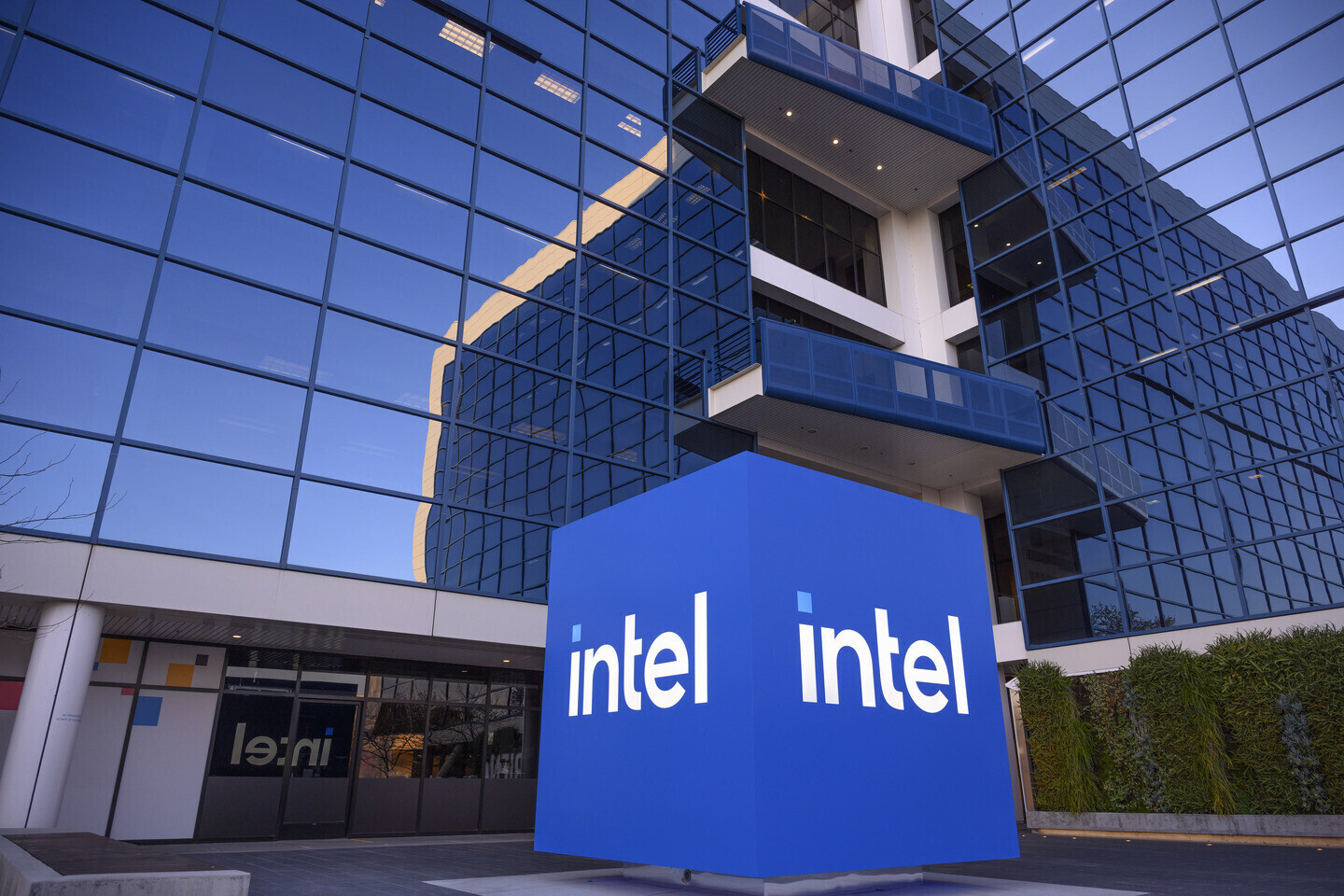winjer
Member

Report: Intel Could Spin Out Foundry Business or Cancel Some Expansion Plans to Control Losses
According to a recent report from Bloomberg, Intel is in talks with investment banks about a possible spin-out of its foundry business, as well as scraping some existing expansion plans to cut losses. As the report highlights, sources close to Intel noted that the company is exploring various...
According to a recent report from Bloomberg, Intel is in talks with investment banks about a possible spin-out of its foundry business, as well as scraping some existing expansion plans to cut losses. As the report highlights, sources close to Intel noted that the company is exploring various ways to deal with the recent Q2 2024 earnings report. While Intel's revenues are in decline, they are still high. However, the profitability of running its business has declined so much that the company is now operating on a net loss, with an astonishing $1.61 billion in the red. CEO Pat Gelsinger is now exploring various ways to control these losses and make the 56-year-old giant profitable again. Goldman Sachs and Morgan Stanley are reportedly advising Intel about its future moves regarding the foundry business and overall operations.
The Intel Foundry unit represents the biggest consumer of the company's funds, as the expansion plans across the US and Europe are costing Intel billions of US Dollars. Even though the company receives various state subsidies to build semiconductor manufacturing facilities, it still has to put much of its capital to work. Given that the company is running tight on funds, some of these expansion plans that are not business-critical may get scraped. Additionally, running the foundry business is also turning out to be rather costly, with Q2 2024 recording a negative 65.5% operating margin. Separating Intel Product and Intel Foundry may be an option, or even selling the foundry business as a whole is on the table. Whatever happens next is yet to be cleared up. During the Deutsche Bank Technology Conference on Thursday, Pat Gelsinger also noted that "It's been a difficult few weeks" for Intel, with many employees getting laid off to try to establish new cost-saving measures.

Intel Is Said to Explore Options to Cope With Historic Slump
Intel Corp. is working with investment bankers to help navigate the most difficult period in its 56-year history, according to people familiar with the matter.
Intel Corp. is working with investment bankers to help navigate the most difficult period in its 56-year history, according to people familiar with the matter.
The company is discussing various scenarios, including a split of its product-design and manufacturing businesses, as well as which factory projects might potentially be scrapped, said the people, who asked not to be identified because the deliberations are private.
Morgan Stanley and Goldman Sachs Group Inc., Intel’s longtime bankers, have been providing advice on the possibilities, which could also include potential M&A, the people said. The discussions have only grown more urgent since the Santa Clara, California-based company delivered a grim earnings report this month, which sent the shares plunging to their lowest level since 2013.
The various options are expected to be presented during a board meeting in September, the people said.
Intel shares rose 1.9% to $20.51 in early trading on Friday before markets opened in New York. They have declined 60% this year, compared with a 20% gain for the Philadelphia Stock Exchange Semiconductor Index, a chip-industry benchmark.
No major move is imminent and discussions are still in early stages, the people cautioned. A representative for Intel declined to comment, while Morgan Stanley and Goldman Sachs didn’t immediately respond to requests for comment.
A potential separation or sale of Intel’s foundry division, which is aimed at manufacturing chips for outside customers, would be an about-face for Chief Executive Officer Pat Gelsinger. Gelsinger has viewed the business as key to restoring Intel’s standing among chipmakers and had hoped it would eventually compete with the likes of Taiwan Semiconductor Manufacturing Co., which pioneered the foundry industry.
But it’s more likely that Intel takes a less dramatic step before it reaches that point, such as holding off on some of its expansion plans, the people said. The company has already done project financing deals with Brookfield Infrastructure Partners and Apollo Global Management.
Intel’s Gelsinger is running out of time to pull off a much-needed turnaround. He’s been attempting to expand the chipmaker’s factory network at the same time that sales are shrinking — a money-losing proposition. The company suffered a net loss of $1.61 billion last quarter, and analysts are predicting more red ink for the next year.
“Expect big capex cuts from Intel over the next 12 months,” said Amir Anvarzadeh, market strategist at Asymmetric Advisors. “Intel’s model is effectively broken. It’s fighting fires on too many fronts.”
Gelsinger, an Intel veteran who left the company for more than a decade, took the helm in 2021 and promised to restore the company’s technological edge. Under previous CEOs, the chip pioneer had lost market share and its long-vaunted reputation for innovation.
But his comeback plan proved overly ambitious, and the company has had to scale back. When it reported earnings earlier this month, Intel announced plans to cut about 15,000 jobs and slash capital spending. The company even suspended its long-prized dividend.
“It’s been a difficult few weeks,” Gelsinger told investors at the Deutsche Bank Technology Conference on Thursday. The company tried to lay out a “clear view” of its next steps during its earnings report, he said. “Obviously the market didn’t respond positively. We understand that.”
Adding to the upheaval, director Lip-Bu Tan abruptly stepped down from the board last week. The semiconductor veteran, who was brought in two years ago to help with the comeback effort, cited scheduling commitments. But his departure removed one of the few directors with industry knowledge and experience.
Gelsinger’s comeback plan hinged on recasting Intel into two groups: one that designs chips and another that manufactures them. The production arm would then be free to seek business from other companies.
But the biggest client of Intel’s factory network is still Intel. Until the foundry business has more outside customers, it’s going to be challenged financially. It reported operating losses of $2.8 billion in its most recent quarter and is now on course to have a worse year than projected.
With a market value of $86 billion, Intel has fallen out of the top 10 largest chipmakers in the world ranked by that measure. It’s the second-worst performer on the Philadelphia chip index this year and suffers in comparisons with the stratospheric gains of Nvidia Corp., a company that’s on course to post double Intel’s revenue in 2024.
As recently as 2021, Intel was three times the size of Nvidia by revenue.

An Industry Veteran Quits Intel's Board After Developing Differences Over The Company's Contract Manufacturing Strategy And Its "Bureaucratic Layers"
To Tan, Intel appears a bloated mess with inertia-inducing layers of bureaucracy, including an army of middle managers who thwart innovation.
Lip-Bu Tan, a high-profile board member of Intel, has now resigned, as per the reporting by Reuters.
Officially, Tan cited his "various commitments" as the stimulus behind his exit, asserting that he remained "supportive" of Intel's turnaround strategy. Privately though, Tan his purportedly voiced a litany of grievances.
To Tan, Intel appears a bloated mess with inertia-inducing layers of bureaucracy, including an army of middle managers who thwart innovation at the company's desktop and server divisions.
To put Intel's bloat into context, some of the teams are currently operating with a headcount that is five times the size of the given teams at the company's rivals doing comparable work.
Some of Intel's former executives, as quoted by Reuters, see its work culture as complacent and uncompetitive, which is a material deviation from the "only-the-paranoid-survive" maxim of the company's co-founder, Andy Grove.
In fact, with Intel employing more people than NVIDIA or TSMC, a former executive believes Intel should have doubled its recent layoffs, and implemented that culling years ago.



